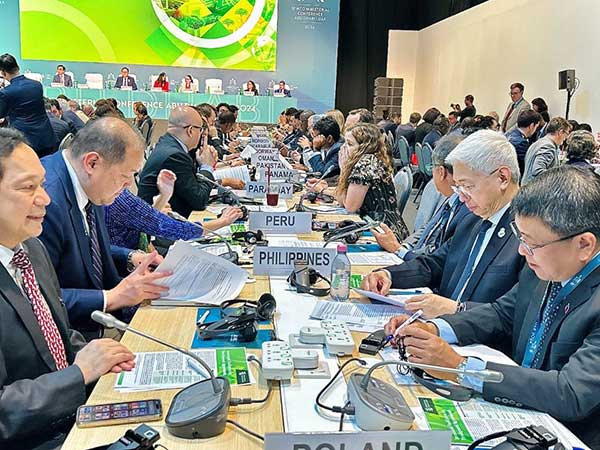
In a landmark move towards a more sustainable and environmentally friendly future, the Department of Trade and Industry (DTI) of the Philippines and the United Nations Industrial Development Organization (UNIDO) have joined forces.
Secretary Fred Pascual of DTI and UNIDO Philippine Representative Teddy Monroy have signed the “Accelerating the Adoption and Scale-up Electric Mobility for Low-Carbon City Development in the Philippines” (E-Mobility) project on February 23.
This pioneering project seeks to transform the Philippine transportation landscape by advocating for electric vehicles (EVs) and nurturing a robust local EV manufacturing industry. It aims not only to combat climate change but also to position the Philippines as a leader in clean energy and sustainable transportation manufacturing in the region.
Funded by the Global Environment Facility (GEF) and spearheaded by the United Nations Environment Programme (UNEP), the E-Mobility project targets four key areas: electric public utility vehicles (ePUVs), electric two-wheelers (e2Ws), batteries, electronics, and software.
Its goals are ambitious: narrowing the cost gap between electric and conventional vehicles, establishing viable business models, pioneering innovative charging solutions, and ramping up investments through strategic partnerships and capacity building.
A consortium of seasoned experts in sustainable mobility, including Clean Air Asia, De La Salle University (DLSU), the Electric Vehicle Association of the Philippines (EVAP), and Urban Electric Mobility Initiative (UEMI), has been mobilized by UNIDO to ensure the project’s success.
Secretary Pascual emphasized the DTI’s role in maximizing the project’s impact, stating, “As the project’s government executing agency, we at the DTI will be responsible for leveraging this important project and harmonizing efforts focused on e-mobility industry development.” He also reaffirmed DTI’s ongoing commitment to policies that would draw investments in EVs and related infrastructure.
Undersecretary Rafaelita Aldaba of DTI underscored the wider economic implications: “Beyond reducing carbon emissions, we aim to draw significant investments in the EV manufacturing sector and generate high-quality jobs for Filipinos.”
Echoing these sentiments, UNIDO’s Teddy Monroy championed the sustained partnership with DTI to promote a fair and low-carbon economy and sustainable livelihoods. Similarly, Clean Air Asia’s Atty. Glynda Bathan-Baterina highlighted the joint commitment to sustainable transportation, with visions of improved public health, reduced emissions, and job creation in the local EV manufacturing sector.
Slated to run until June 2027, the E-Mobility project will focus on policy enhancements and demonstration actions in select cities, deploying e-mobility infrastructure in areas with high transportation volumes.
This partnership between DTI and UNIDO represents a significant step for the Philippines in achieving the decarbonization goals outlined in the PEDP 2023-2028 and aligning with the United Nations’ Sustainable Development Goals.




















